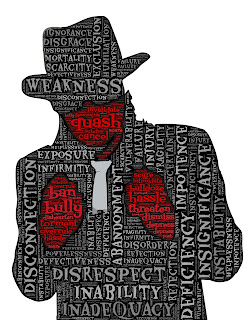TRAUMA SURVIVORS: CAN WE FIND HAPPINESS?

JULY 18 2020 STEPHANIE SHIPP B.A., J.D., CTRC CERTIFIED TRAUMA RECOVERY COACH SO YOU'VE BEEN SWEATING YOUR WAY through recovery from trauma. And little by little you've started to notice something . . . . . some days, you feel GOOD. You have moments where you feel something you thought was impossible for you - you feel HAPPY?! Is that even possible? How can someone who suffered through what you have been through, feel HAPPY? Do you even have a right to feel happy? Do you have to feel it all the time? WHAT DOES IT MEAN TO FEEL HAPPY? This sounds like an absurd question. Doesn't everyone know what it feels like to be happy? Sadly, many trauma survivors do not. And it's not our fault. Those of us who were raised by chronically unhappy parents who modeled nothing but dissatisfaction, sadness, anger and so on, never saw happiness in our homes. Many survivors were consumed with trying to just survive trauma - happiness was not...





